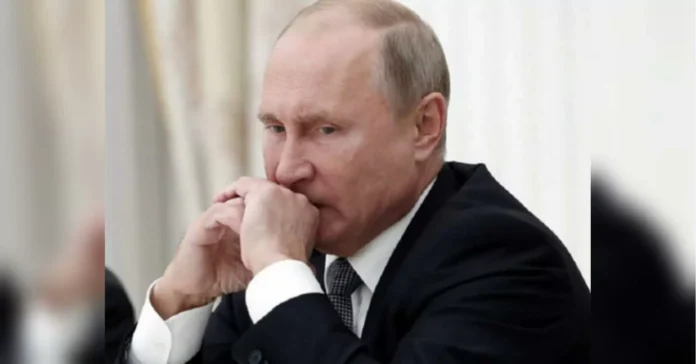There is no denying that Russia has undergone significant changes under the leadership of President Vladimir Putin. From the economic reforms of the early 2000s to the annexation of Crimea in 2014, Putin has been at the helm of the country’s transformation. However, there has been much debate about his ultimate goal for Russia – is it to restore its former power and influence on the global stage, or is it to establish a more democratic society?
According to Bruno Kahl, the head of Germany’s foreign intelligence agency, there are no signs that Putin’s goal of restoring Russia’s former power will change through democratic means. In an interview with the German newspaper Süddeutsche Zeitung, Kahl stated that Putin’s actions and policies have shown a clear desire to regain Russia’s status as a major world power.
One of the key factors that Kahl points to is Putin’s aggressive foreign policy. From the annexation of Crimea to the ongoing conflict in Ukraine, Putin has shown a willingness to use military force to achieve his goals. This has not only caused tension with neighboring countries, but also with the international community as a whole. Kahl believes that this behavior is indicative of Putin’s desire to assert Russia’s dominance and influence in the world.
Furthermore, Kahl argues that Putin’s crackdown on dissent and opposition within Russia also suggests that he has no intention of promoting democratic values. The suppression of independent media, the persecution of political opponents, and the tightening of control over civil society all point to a leader who is not interested in sharing power or promoting democratic principles.
But why is Putin so determined to restore Russia’s former power? Some experts believe that it is rooted in his personal background and experiences. As a former KGB agent, Putin has a deep sense of pride and nostalgia for the Soviet Union and its superpower status. He has also faced criticism and opposition from the West, which may have fueled his desire to prove Russia’s strength and resilience.
However, Kahl’s statements have been met with skepticism by some experts. They argue that while Putin may have authoritarian tendencies, he is also a pragmatic leader who is willing to adapt his strategies to achieve his goals. They point to his efforts to modernize the Russian economy and his attempts to improve relations with other countries, such as China, as evidence of his willingness to use different means to achieve his objectives.
Moreover, there are also those who believe that Putin’s ultimate goal is not to restore Russia’s former power, but rather to maintain his own grip on power. As the longest-serving leader in modern Russian history, Putin has consolidated his control over the country and its resources. Some experts argue that his actions are driven by a desire to protect his own interests and maintain his position of authority.
In conclusion, while there may be differing opinions on Putin’s ultimate goal for Russia, one thing is clear – there are no signs that he will change his approach to achieve it. Kahl’s statements serve as a reminder that Putin’s actions and policies are driven by a desire to restore Russia’s former power and influence, and that he is not likely to deviate from this path through democratic means. As the world continues to watch and analyze Putin’s actions, it remains to be seen how his pursuit of power will shape the future of Russia and its place in the global community.

